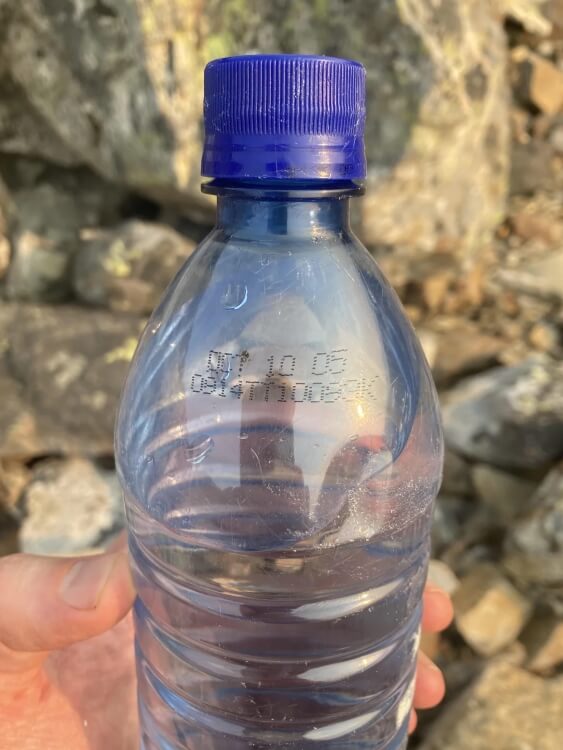According to some estimations, plastic water bottles can take up to 450 years to break down. While observing this would take multiple lifetimes, one hiker recently stumbled across a situation highlighting just how long these items can pollute our ecosystems.
In Reddit's r/mildlyinteresting community, the hiker posted a photo of a plastic water bottle they discovered underneath some rocks. A serial number and a stamp with the date Oct. 10, 2005, are clearly visible on it.

"Found an unopened water bottle while hiking hidden under rocks, likely untouched for 20 years," the original poster wrote.
Some commenters humorously suggested that 2005 surely wasn't almost two decades ago. However, others couldn't help but observe how the bottle was basically in pristine condition despite the passage of time — though some noted the water itself was likely contaminated with even more microplastics than might otherwise be present.
"That bottle of water is older than me, and it looks untouched by the years," one 18-year-old commenter wrote.
"Test the water for microplastics," another said, referring to tiny pieces of plastic no more than 5 millimeters (around the diameter of a pencil-top eraser). Researchers have linked these particles to an array of concerning health issues, including lung disorders and cancer.
One study found that reducing plastic bottled water intake may result in lower blood pressure, providing yet another reason for people to switch to reusable options. Moreover, avoiding single-use plastics helps reduce the toxic waste that is ruining the beauty of community spaces and becoming a long-term environmental hazard.
Meanwhile, someone else highlighted how part of respecting nature is responsibly stewarding precious resources, like the water in the nearly 20-year-old bottle. According to the Bureau of Reclamation, a water management agency, only 3% of water on Earth is fresh, yet only 0.5% of that is available for drinking.
🗣️ Do you think America does a good job of protecting its natural beauty?
🔘 Definitely 👍
🔘 Only in some areas ☝️
🔘 No way 👎
🔘 I'm not sure 🤷
🗳️ Click your choice to see results and speak your mind
"I think about the amount of trapped water that exists in the world like this," the commenter said. "It can't evaporate and re-enter the cycle of evaporation to clouds to rain and back again."
"I think about this too," someone replied. "... Glad I'm not alone!"
Join our free newsletter for good news and useful tips, and don't miss this cool list of easy ways to help yourself while helping the planet.









